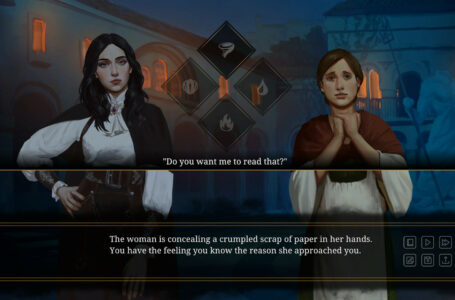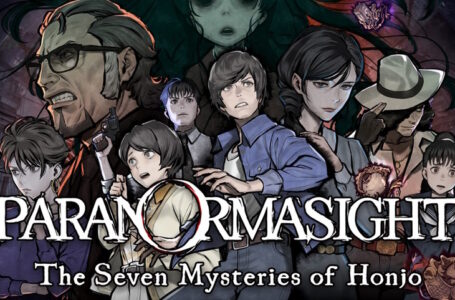Full Metal Daemon Muramasa: now there’s the Nitroplus I know and am terrified by
Before we continue on with our spoileriffic exploration of Nitroplus’ Full Metal Daemon Muramasa, I feel I need to address something, based on some correspondence I found waiting for me in my mailbox this morning. This is not something I feel we should need to address at this point, but since someone brought it up directly, I’m going to speak about it very clearly anyway.
I quote the message from one “Ben” verbatim, lack of punctuation, incorrect game title, non-existent capitalisation and all: “full demon muramasa is a legitimately nazi game”. Now, dear readers, I’m sure I don’t need to tell most of you the things I’m about to say, but apparently our Ben here is struggling a little with the concept, so indulge me for a moment, if you please.
Full Metal Daemon Muramasa is a work of fiction. That means it is not real. The characters in it are not real, they never have been real, and they never will be real. They are the creation of an author, yes — in this case Ittetsu Narahara, as we talked about last time — but they are not the same person as the author. In other words, at times they may say or do things that the author does not agree with, all in the name of advancing the story and helping us to understand who these characters really are.
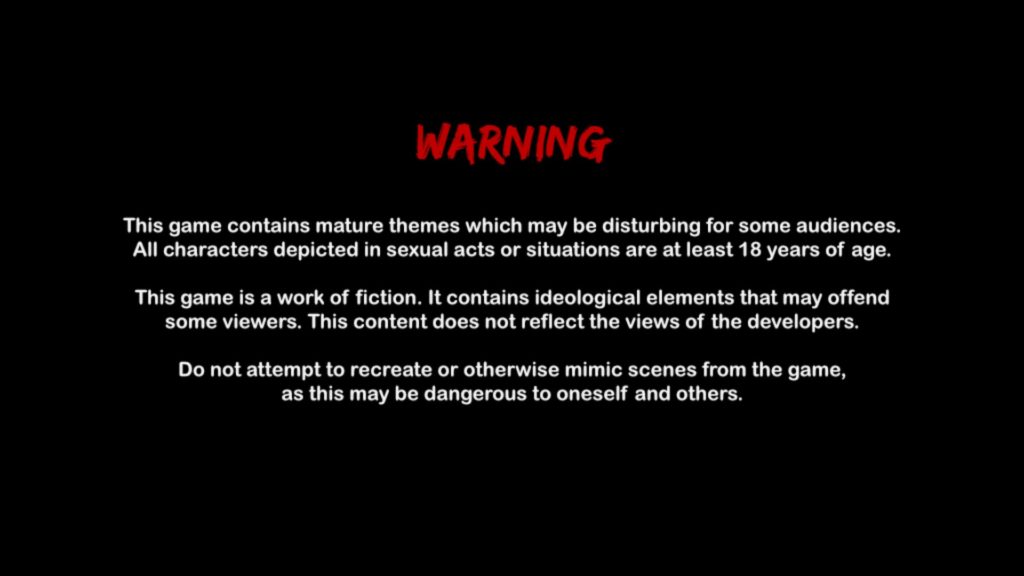
There are any number of reasons an author might want to introduce morally ambiguous or outright evil characters into a story, but one thing you can pretty reliably say is that most authors and readers alike are able to separate objectionable ideology espoused by characters in fiction from their real-world situation, as well as fantasy from reality.
To put it another way, while you might perceive some of the characters in Full Metal Daemon Muramasa as having Nazi-like tendencies — and they most certainly do in places — that does not mean that it is a “Nazi game”, it does not mean the author is a Nazi and it does not mean anyone involved with or who expresses an interest in the game is a Nazi either.
And to put it another, even simpler way: depicting something does not mean you endorse it.
Basically, Ben… dear, sweet, innocent Ben… perhaps if you lack the maturity to explore works of fiction intended for adults — which often includes confronting, questioning and understanding difficult or objectionable themes — then you should probably stick to things that are more in your comfort zone. Full Metal Daemon Muramasa is an unapologetically adult game — and not just because it incorporates explicit sexual scenes. No; it’s a game for grown-ups, and I completely understand and respect if some people can’t deal with that.
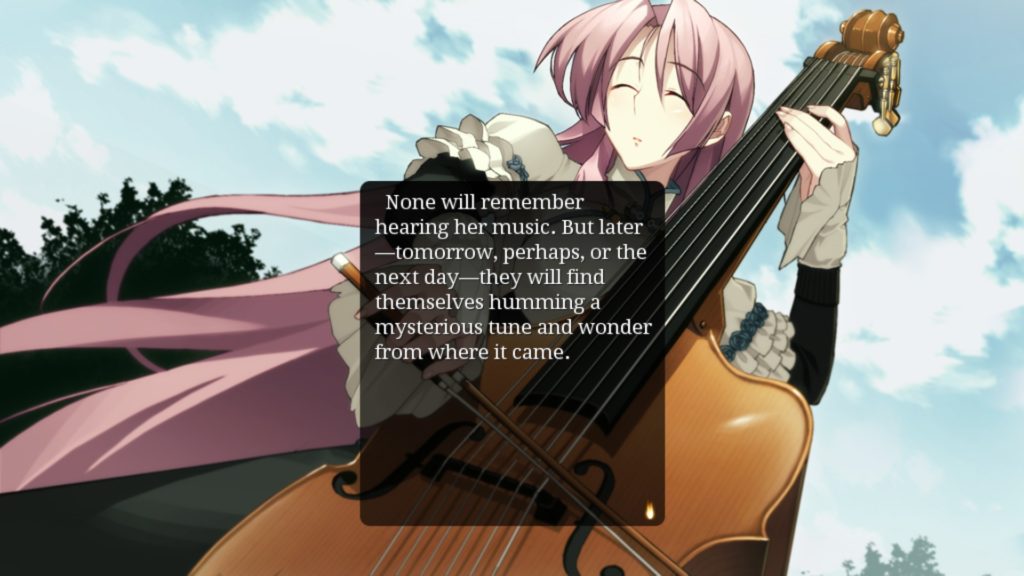
What I can’t respect, however, is someone coming along and saying something they can’t personally deal with is “Nazi”, since that is disrespectful to the people who worked on the original visual novel, the people who painstakingly translated it for a western audience — a task once thought impossible, remember — as well as the people who have been eagerly awaiting said release; people who enjoy being challenged through the things they read.
So next time you think about branding a piece of entertainment — one widely regarded as a masterpiece, in this instance — as somehow equivalent to what is probably the most vile, villainous group of people in recorded human history, maybe just stop and think a moment before hitting that “Send” button.
I thank you for your time and patience. I normally wouldn’t waste time on such an obviously trolling comment, but it’s clear from Ben’s message that Full Metal Daemon Muramasa is a controversial work to some, and as such it needs addressing up front if we’re going to continue exploring this work in detail. Because, as some of the things we’ll talk about today make it abundantly clear, things are going to get much, much worse in terms of the things the game explores — and I suspect we’re just getting started.
Needless to say, there will be Full Metal Daemon Muramasa spoilers ahead, as well as discussion of potentially upsetting content. You have been warned!
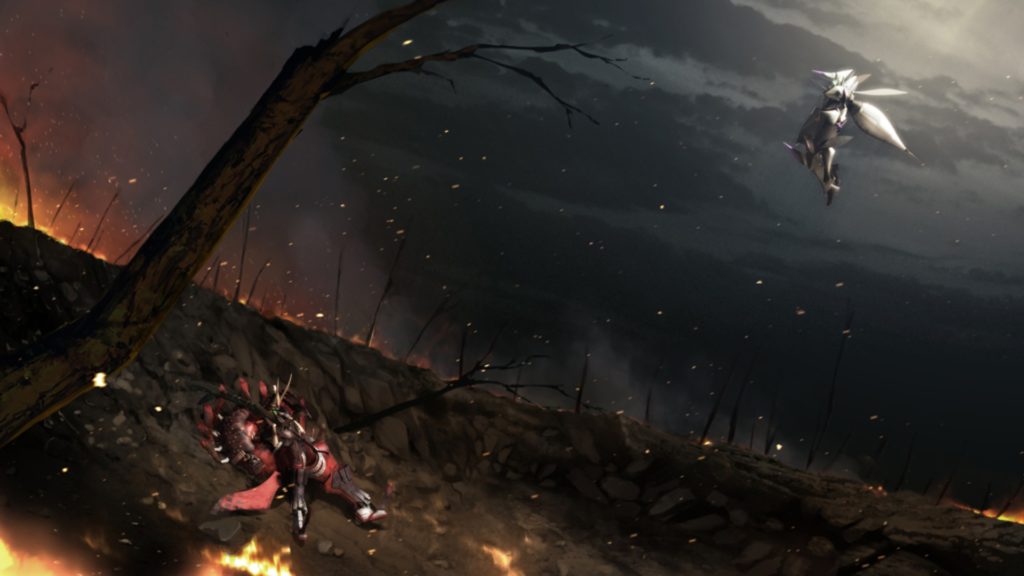
So last time around we talked a little about the opening hours of Full Metal Daemon Muramasa, and how they presented an interesting contrast between depicting the potential brutality that can unfold in an occupied land, and the more “everyday” life of people who are living under that same oppressive regime, trying their best not to let their oppressors notice them.
Full Metal Daemon Muramasa’s initial chapter after its dramatic opening appears to focus on a group of school-age friends who are concerned about the disappearance of their friend under mysterious and potentially horrifying circumstances.
We’re led to believe that Yuhi, Konatsu and Tadayasu are going to be our “main characters” for at least some of the overall narrative — they’re even given prominent billing in the accompanying documentation for the game — but, this being a Nitroplus game, you should be ready for anything. Many Nitroplus titles play with narrative perspective in particular a great deal, often placing different characters in the leading role and, at times, even presenting the action from a detached, non-participant, omniescient third-person viewpoint.
Deus Machina Demonbane, for example, which shares a few thematic similarities in common with Muramasa, oscillates between showing the action from the perspective of its hard-boiled private detective protagonist Kurou and the distinctly Lovecraftian tones of a non-participant omniscient narrator seemingly observing the unfolding action with amused interest.
Likewise, the company’s classic Saya no Uta is so effective because we get to see what is going on both through the eyes of its unreliable narrator-protagonist, as well as from the perspective of other characters. In the case of that story, their perception of things is wildly different, and a lot of that game’s most successful horror comes from gradually piecing things together and determining what is real and what isn’t.
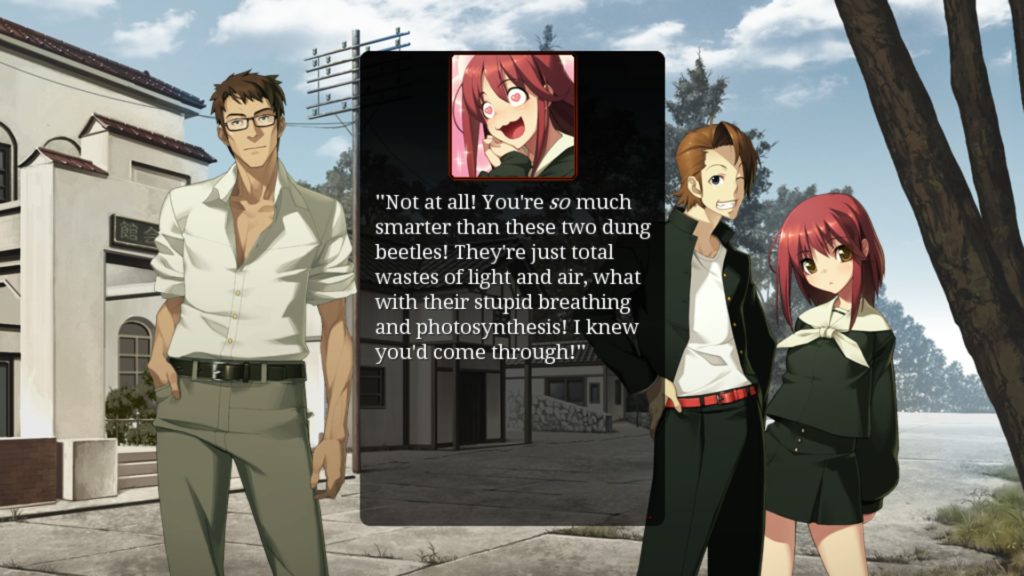
With that in mind, I was expecting something unusual from Muramasa — though I wasn’t sure what. Since different Nitroplus titles have done very different things in terms of narrative structure, I really found myself wondering exactly what would happen with Muramasa. Because Yuhi, Konatsu and Tadayasu were, by the time I was thinking this, establishing themselves quite nicely as interesting and likeable characters; it sure would be a shame if something happened to them, wouldn’t it?
Of course it would. Which is exactly why something horrendous happens to all of them. And, at the same time, this part of the narrative drives home a core message of Muramasa: the fact that there are no real heroes, and that even people you have come to trust and rely on are, in many cases, not the people you thought they were.
As previously noted, the action in this part of Muramasa concerns Yuhi and company’s attempts to track down their missing friend Ritsu. Their investigation proceeds slowly at first, but they manage to uncover a few clues — and when Muramasa’s actual main protagonist Kageaki Minato appears, they start drawing a little closer to the truth with the help of this mysterious and bleak figure.
Yuhi in particular is initially rather taken with Minato’s outlook on life, particularly his philosophy “I must fight, therefore I shall” — without considering the likelihood (or lack thereof) of victory if the only option is to stand up for oneself.
“When there is no choice but to fight,” he says, “is the likelihood of victory important? I am not so conceited as to believe that my battle has meaning in itself. This is not a sport, where one can be satisfied with having done his best. I must win, at all costs. But such concerns come after one has made the decision to fight. I must fight, therefore I shall. To reach this conclusion does not require one to consider the possibility of success.”
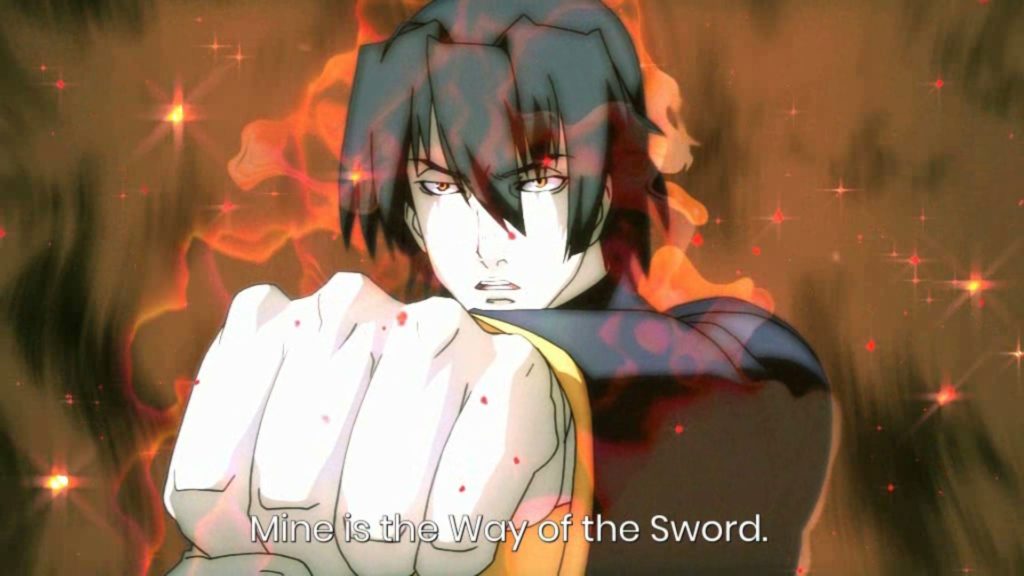
A pretty badass way to look at things, as I’m sure you’ll agree — which is why Yuhi and his friends are so very surprised when he appears to defend them from an altercation from the local yakuza, and instead of beating the crap out of their assailants, he instead kowtows to them in a way that causes everyone in the vicinity to completely lose all respect for him. Little do they know at the time that he’s still just following his core philosophy here — except in this case, he does not have to fight, so he does not.
Pretty simple when you think about it rationally — but obviously when you’re under threat of physical and possibly sexual violence, as the kids are at the point when this occurs, you tend not to think particularly rationally. And as such this incident causes them to abandon Minato completely, understandably believing him to be a spineless coward.
They know they still need help, however, and thus they seek assistance from their teacher Suzukawa, a character who, up until this point, has been a little bit of an enigma. While on the one hand he appears to be a widely respected and well-loved teacher, any time he talks about the history of Muramasa’s setting Yamato, he becomes curiously heated and angry, displaying a series of alarming facial expressions which will surely give most readers pause. It’s clear that he harbours strongly negative feelings about the occupying Rokuhara forces, but being in a position of public service, he’s not really able to do much about it.
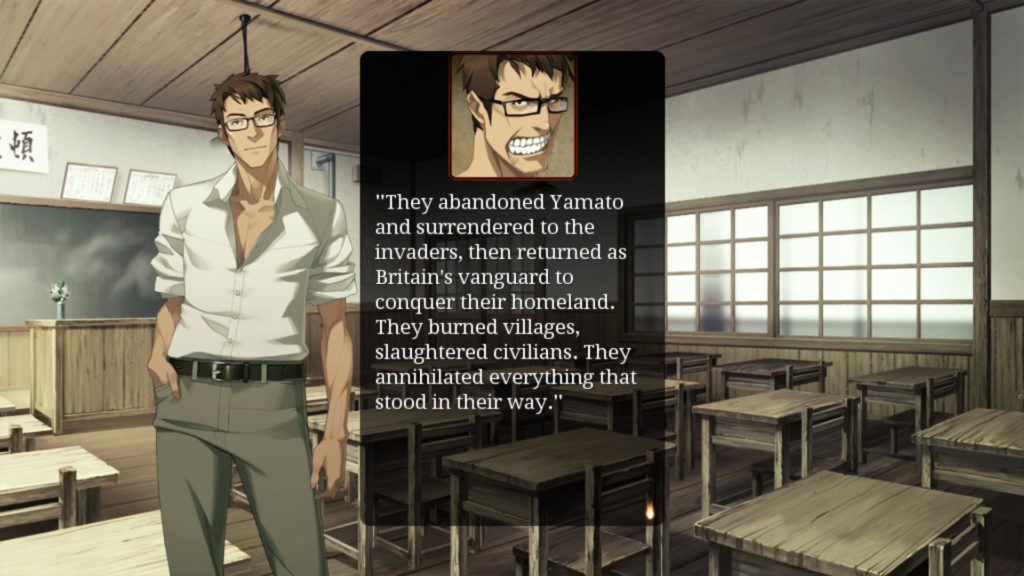
Indeed, Yuhi and friends actually find themselves dragged into the school principal’s office alongside Suzukawa; while Yuhi and company are initially berated for causing trouble during their investigations into Ritsu’s disappearance, Suzukawa’s “unconventional” teaching style gets drawn into the mix, too. And the upshot of it all is that Yuhi and friends feel like they’ve found an ally in Suzukawa, particularly after he defends the “beauty” of their pure intentions to save their friend from what is still, at this point, a completely unknown fate.
All seems to be going well for a while, with Suzukawa managing to uncover clues that even the seemingly eagle-eyed and very intelligent Minato missed during earlier investigations. Eventually, Suzukawa brings Yuhi, Konatsu and Tadayasu to an abandoned school building — supposedly the original site of the school where Suzukawa now teaches, and where Yuhi, Konatsu and Tadayasu attend. The building is surprisingly well-preserved despite being abandoned, but Yuhi in particular notes that there is a peculiar, foul and oddly familiar stench to the place that he isn’t quite able to place.
What then follows is a great example of how Nitroplus likes to play with narrative perspective. We continue to witness the action unfold from Yuhi’s perspective, but after receiving a rather severe shock, he suddenly becomes a much less reliable narrator as his senses are affected by how rattled he is.

This is then followed up by him suffering some excruciating physical and mental pain, so although we’re witnessing absolute atrocities unfolding before us — atrocities which, not to put too fine a point on it, none of the group of friends will ever recover from — we find ourselves questioning exactly whether what we’re seeing is real or not, since we’re seeing it through Yuhi’s eyes and thus enjoying a potentially distorted perception of reality. This is, of course, not helped by the fact that Suzukawa precedes the unfolding horrors with the assertion that “from now on, what happens is only a dream; nothing that happens is real. Keep telling yourself that.”
Is it real or is it actually just a dream? It certainly seems to be real, particularly with the consequences that follow. But it also leaves the reader with a lot of questions — particularly once Minato intervenes, resolves the situation as well as one could hope for such a horrifying scenario to be resolved, and closes off the whole case with a rather surprising and, at the time, inexplicable conclusion to proceedings.
It’s at this point that Muramasa as a whole really feels like it’s started to show its true colours. There are no heroes, it keeps telling us. There is no place for heroes here. And that certainly seems to be the case — whatever we might have been led to believe up until now.
Full Metal Daemon Muramasa is available now from JAST USA.
Join The Discussion
Rice Digital Discord
Rice Digital Twitter
Rice Digital Facebook
Or write us a letter for the Rice Digital Friday Letters Page by clicking here!
Disclosure: Some links in this article may be affiliate links, which means we may earn a small commission if you make a purchase after clicking on them. This is at no additional cost to you and helps support Rice Digital!
- Letter from the Editor: passing the torch - June 30, 2023
- Super Woden GP 2 is looking promising - June 30, 2023
- Inti Creates is making a 32 bit-style Love Live action platformer - June 26, 2023






